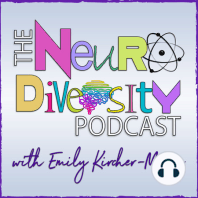33 min listen

Autistic Girls Are Going Undiagnosed or Misdiagnosed
Autistic Girls Are Going Undiagnosed or Misdiagnosed
ratings:
Length:
33 minutes
Released:
Feb 16, 2023
Format:
Podcast episode
Description
Often, autistic girls are called shy, introverted, perfectionistic, confused, anything BUT autistic. There is a pervasive impression, even in the medical community, that autism occurs in boys vastly more often than girls. The result is, autistic girls are missing out on services and tools that are available to them. Holly Blanc Moses is a therapist, and the host of The Autism ADHD Podcast, and she joins Emily Kircher-Morris to talk about missing autism in girls. On Your Marq at Marquette University is a proud sponsor of episode 159. For more information, go to http://www.marquette.edu/on-your-marq. Also, here’s the link to pre-order A Parent’s Guide to Gifted Children, Second Edition. ABOUT THE GUEST - Holly Blanc Moses is passionate about helping neurodivergent children, adults and their families. Over the last 23 years, she has provided mental health therapy in the areas of emotional regulation, anxiety, social interaction, depression, parent-child relationship, and school success. She is the host of The Autism ADHD Podcast and Autism ADHD TV. Holly is also the mother of two neurodivergent children. BACKGROUND READING The Autism ADHD Podcast Autism ADHD TV Facebook group for parents Facebook group for professionals Holly’s practice Education and course website
Released:
Feb 16, 2023
Format:
Podcast episode
Titles in the series (100)
Potholes On Memory Lane: Gifted Kids and Trauma | Gifted | Parenting | Violence: Signs of trauma can easily be dismissed as symptoms of something else entirely. On episode 19, Emily welcomes author and trauma expert Heather Forbes to talk about how to identify the signs of trauma, and ultimately how to control and minimize its... by Neurodiversity Podcast